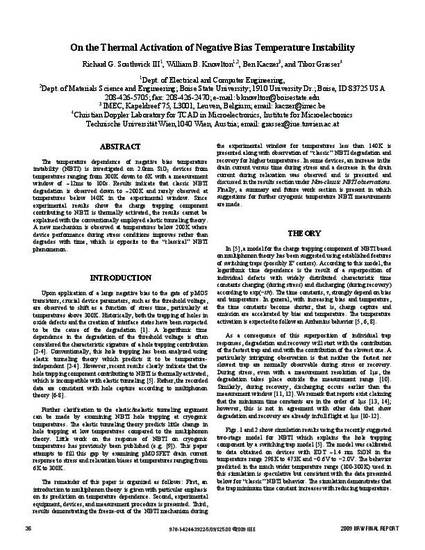
The temperature dependence of negative bias temperature instability (NBTI) is investigated on 2.0nm SiO2 devices from temperatures ranging from 300K down to 6K with a measurement window of ~12ms to 100s. Results indicate that classic NBTI degradation is observed down to ~200K and rarely observed at temperatures below 140K in the experimental window. Since experimental results show the charge trapping component contributing to NBTI is thermally activated, the results cannot be explained with the conventionally employed elastic tunneling theory. A new mechanism is observed at temperatures below 200K where device performance during stress conditions improves rather than degrades with time, which is opposite to the "classical" NBTI phenomenon.
©2009 IEEE. Personal use of this material is permitted. However, permission to reprint/republish this material for advertising or promotional purposes or for creating new collective works for resale or redistribution to servers or lists, or to reuse any copyrighted component of this work in other works must be obtained from the IEEE. DOI: 10.1109/IRWS.2009.5383038
Available at: http://works.bepress.com/william_knowlton/1/
